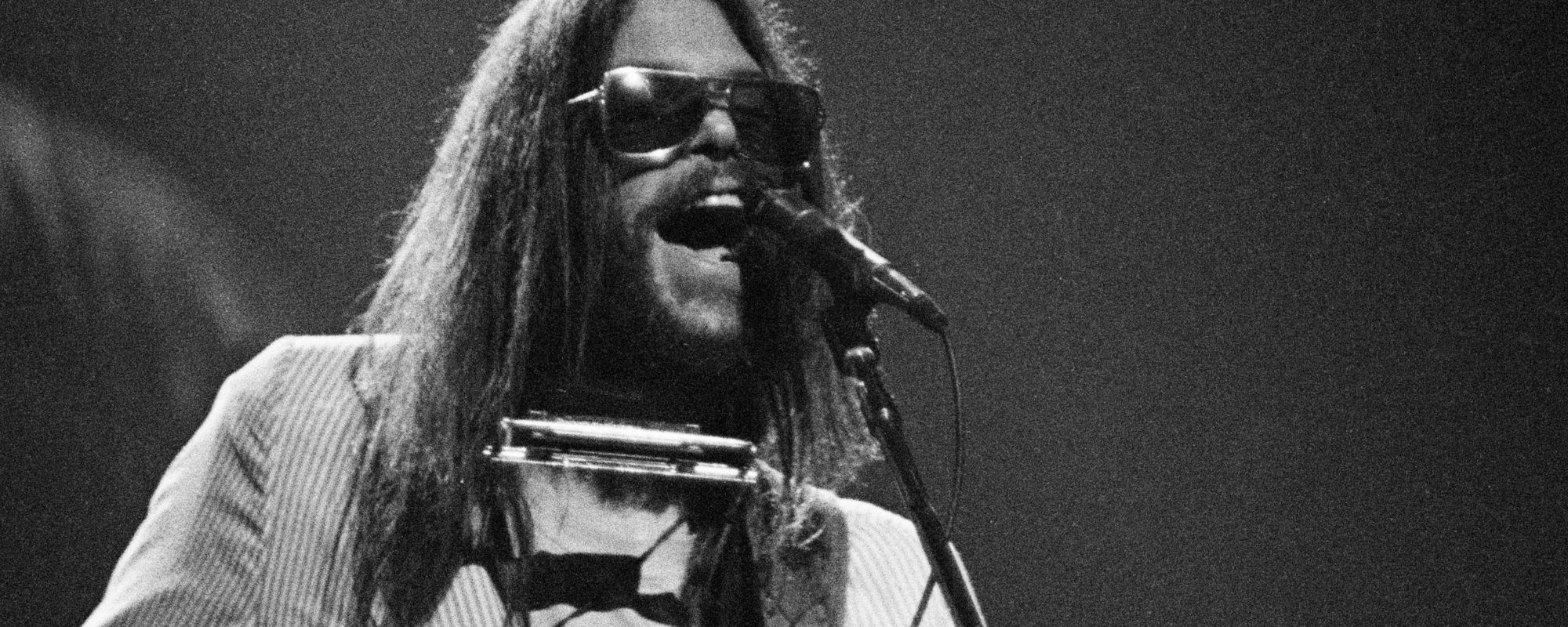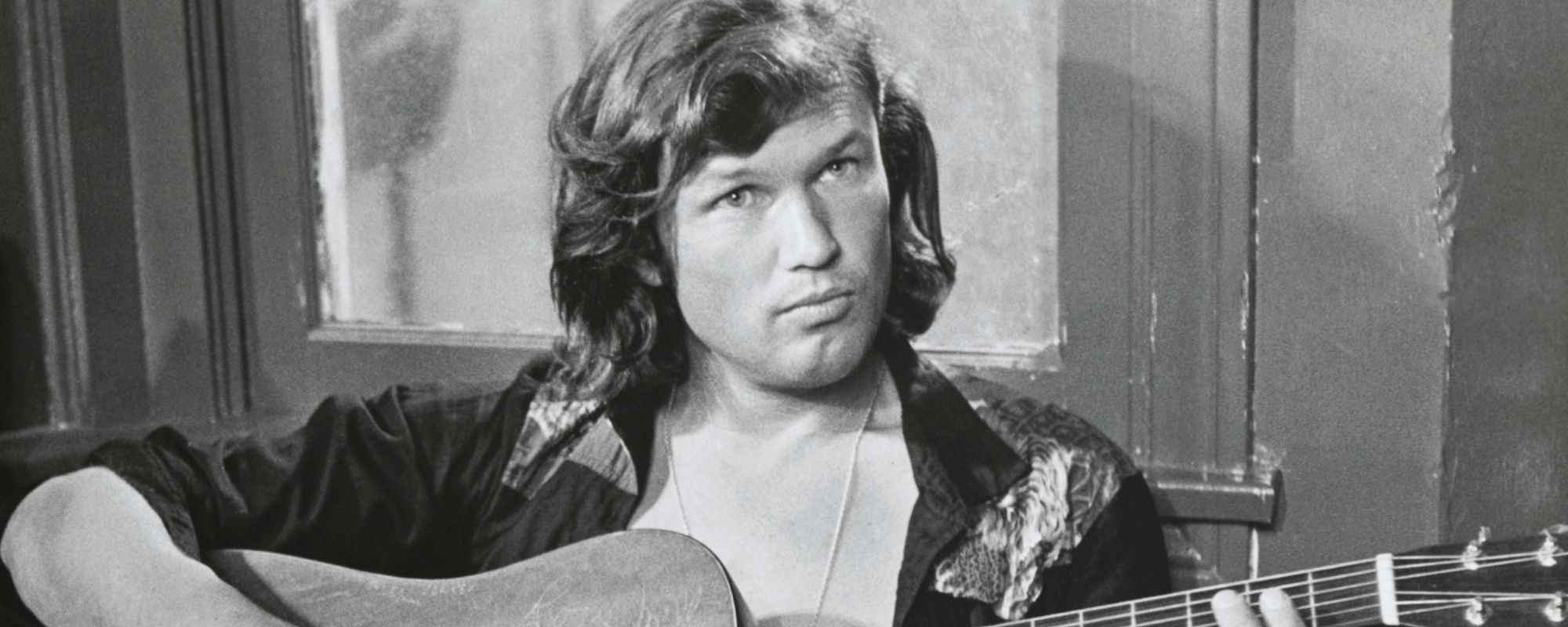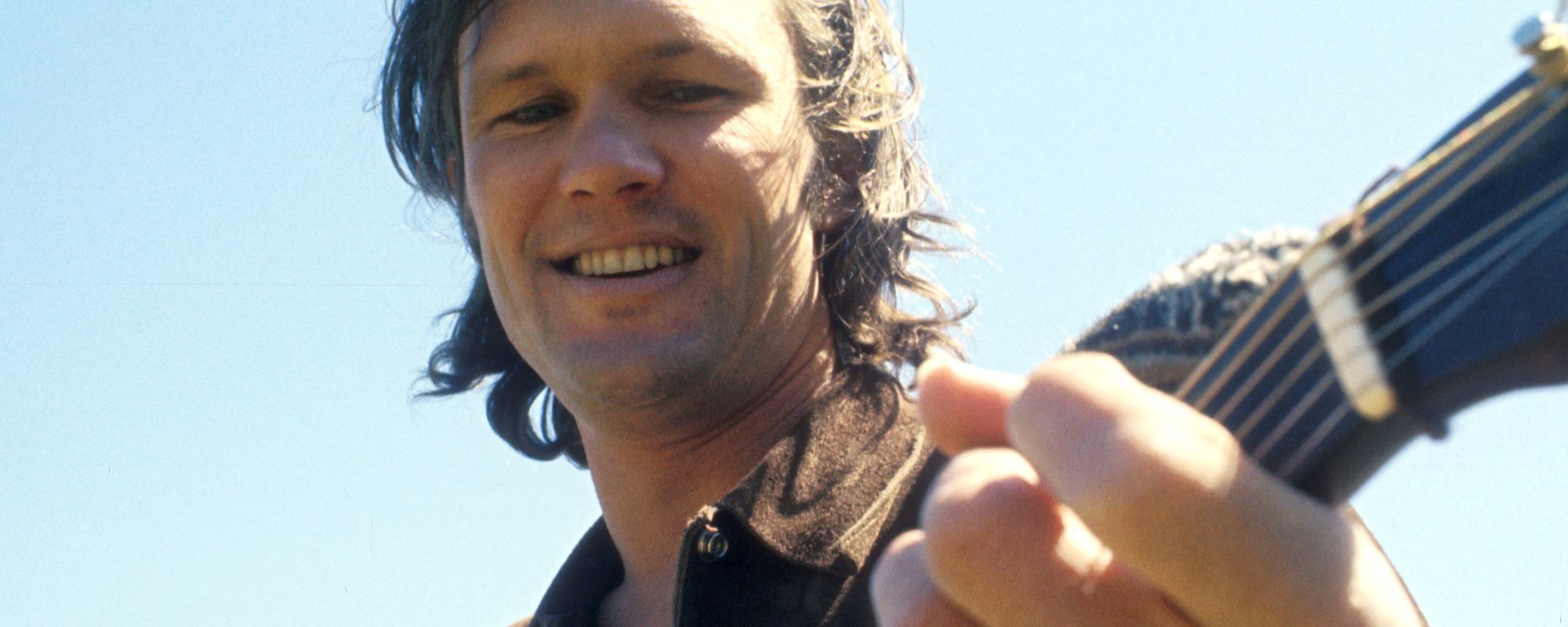John McCutcheon has been at the forefront of the folk music movement since the 1970s, racking up six GRAMMY nominations along the way. He just released his 45th album, Field of Stars, and he’s not showing any signs of slowing down. John gave our American Songwriter Members some tips on songwriting, career longevity, and how to keep it interesting and rewarding after 50+ years in.
Videos by American Songwriter
I’ve been writing songs since I got my first guitar at age 14, nearly 60 years ago. And I showed little, if any, promise at that young age. Over the years I learned how to write songs the way I learned to play baseball: standing at the edges, watching the big kids, imitating what I saw, striking out a lot, and, every once in a great while, I’d get a hit. In my particular case, I took a deep dive into writers from the Appalachian region, where I’d set up home. Jean Ritchie, Hazel Dickens, Ola Belle Reed, Billy Ed Wheeler, and others. Folkies like Tom Paxton gave me choruses and humor. Woody Guthrie gave me wings and guts.
From a practical standpoint I learned to ask myself two questions as the first steps for my songwriting: 1) What is the story? And 2) Who is telling this story? Don’t make your characters an avatar of you, let them be unique, self-determining, and ornery. I tend to write pretty cinematically and when I get stuck I “watch the movie” that seems to be always playing in my head. And away I went.
Fast-forward, I returned to the U.S. on March 16, 2020, after a monthlong tour in Australia and found the whole world shut down. I quarantined myself at my North Georgia writing cabin for three weeks and, relieved of all the usual daily trips and chores, I got up and wrote every day. But I did something before I wrote that proved to be transformative to my writing.
Each morning, I got up and I meditated. I prayed. I read Thomas Merton and [Rainer Maria] Rilke, and I read the poetry that arrived in my email box every day (from The Paris Review, Poets.com, and The Writers Almanac). Then I would write. And in this preparative, right-brain-only routine, I found that inspiration came quicker. I surrendered to that inspiration more readily, and I was on a hold-onto-your-hat journey into songs I usually had no intention or notion of how to write.
Now, I am not a “woo-woo” kinda guy. Anyone who hears my songs will know that. But every writer knows there are songs you write and others you simply seem to write down. The hundreds of songs I wrote during the pandemic were not like the latter, usually. But there were enough that I believed in the “letting go” that is necessary to let the song breathe, characters develop their own lives, and the stories take turns I wouldn’t have expected.
The entire process made me a better writer, a better co-writer, and a more curious observer of life. So, let me guide you through some possible exercises:
Meditation: I cannot endorse this practice enough, whether you are a writer nor not. It takes some time to get used to being still. So, just start with five or 10 minutes. Sit comfortably in a straight-backed chair, feet flat on the floor, hands on your knees. Start by taking three deep breaths in and out. Relax your jaw and shoulders. Slowly breathe in/out then through your nose. Don’t worry if your mind drifts or is hyperactive or, as the Buddhists call it, “monkey brain.” Concentrate on your breath. Give your brain a vacation. Once you’ve got 10 minutes down, increase it until you can be still for 20-30 minutes. If you’d like an app to get you going, I recommend Headspace.
Other right-brain stimuli: I use poetry a lot. It’s in the same world as songwriting—that wonderful distillation of language, trying to say a lot with less. I’ve listed the email sources I use above. But you can find your own, as well. Like Merton and Rilke. Mary Oliver is a provocative poet. Wendell Berry is a frequent go-to. Essayist Brian Doyle, amen.
Prompts: In my songwriting camps, I’ll do the above and then give a prompt to the campers, usually an evocative short phrase that can go lots of different directions (“Where I come from” is a favorite. “And one more thing …” “And for my third wish …” “The last song I write …”) Find a bunch of prompts you think are interesting, put ‘em in a hat and draw one out each day.
Yes, each day: You’re a writer? Then write, dammit. It’s more than a job, it’s your work. And in this increasingly unpoetic age, the world desperately needs poets. So, you should write daily. Set a goal, if need be. But, trust me, you’ll write. And, yes, some of it will be crap. But, if you were a baseball player and struck out seven times out of 10, you’d be a shoo-in for the Hall of Fame. And, besides, you’re writing, and it is never a waste of time being creative.
So, here are some examples of goals I set for myself that proved productive and rewarding:
• In 1991 I toured in the Soviet Union. I wrote every day about what happened to me, what I saw, what I rethought, what moved me.
• After 9/11 I knew our world was changing and I wanted to explore that. The songs were remarkably varied, from the heartfelt to the angry to the humorous. Yes, humorous. It’s way harder to write a truly funny song than a serious song. Plus, if we can’t laugh, we’re not gonna make it.
• When my first grandchild was born, I knew my world would change, so I wrote every day. Very little of it was about her in particular, but all of it was surprising and revealing.
• At the end of every one of my songwriting camps I give a challenge to all the folks that were going to leave an incredibly intense and rich environment and then go home all alone. The following weekend was the 25th anniversary of my friend Vedran Smailovic, the cellist of Sarajevo’s 22-day musical vigil at a bombing site during the Balkan War. “Write every day for 22 days as a tribute to him.” I went home and did the same. My album 22 Days was gleaned from the songs that followed.
• In 2016 I got a serious illness that kept me home for 12 weeks. Every day I luxuriated over that file that every writer has, “Songs in Various States of Incompletion.” My album Trolling for Dreams was pieced together from the scraps in that folder.
• My general charge to my songwriting campers is to write every day for two weeks. And, if you find yourself on a roll (and you usually will), give it another week. Reassess, give it another week. And so on.
All this is to say, create an environment of creativity and openness. Find a time and a place, a room, a chair, anywhere that is sacred to the process, somewhere that says, “When you are here, you write.” Clear the deck with right-brain prep. And then, simply write. Don’t demand it be complete or even be a song right away. Just write. Most of the job is simply showing up. You ask any alum of my songwriting camps what my No. 1 rule is, and I guarantee you they will say, “Ass in Chair.”
Hope this helps. Write on purpose. Write with purpose. Be courageous.
The world needs you.
And it’s waiting.
Now, Ass in Chair.
John McCutcheon provided this guest post for the American Songwriter Membership. Become a member and get exclusive content including access to the songwriters behind hit songs by Ed Sheeran, Bonnie Raitt, Morgan Wallen, Guns N’ Roses, and more. Plus special events, song feedback, giveaways, tips, and a community of songwriters and music lovers.
Photo by Irene Young












Leave a Reply
Only members can comment. Become a member. Already a member? Log in.